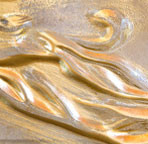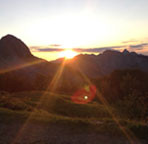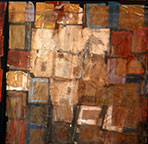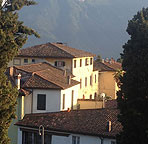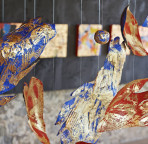It is a popular but fallacious opinion that ‘meaningfulness’ is primarily an individual matter, and that therefore the artist can say no more than, ‘This means something to me.’ Significance, however, is a venture into the public sphere. Instead of the ‘this is good’ or, ‘I like this,’ of individual meaningfulness, the artist says, ‘Here is a world under judgement, a revaluation of my history, which I offer to you as a possible aid in the revaluation of yours.’ It is not a presentation of the world in terms of my consciousness, but a presentation of myself and my world in terms of something not yet fully realized or grasped, a statement of the incompleteness of myself and my world which I make available to you insofar as we share a world or a language.
Here are the roots of one of the great problems of any art—but perhaps especially of the art that works with words themselves. Absolute innovation is not possible. To add to the world, to extend the world and its possibilities, the artist has no option but to take his material from the world as it is.
(. . . )
Strictly speaking, the poet ‘immersed’ in the dark night of the world does not know until he speaks, until he names what surrounds him; and this naming is his poetry. The poet’s problem of communication is not how best to express a set of ideas, clothing thought with imagery for the sake of greater vividness; this would simply take us back to explanations of the world, decked out in eye-catching metaphor. No, it is a problem of bridging the space between my speech and yours, my history and yours . . . It is a problem of availability, how to offer possibilities to other men.
—Rowan Williams, “Poetic and Religious Imagination,” Volume 80 of Theology.
In the article quoted above, Williams explores the idea that the work of art is part of the struggle towards “a vision of the wholeness of the contradictory world.” The world may appear devoid of the presence of God. The “absence of God as an accessible source of explanation,” Williams suggests, is a ‘formal necessity’ for the artist today.
An artist’s immersion in “the dark night of the world” or even in the brilliance of the light of day, far from being an act of isolation, can, therefore, be the first movement of reconciliation. When what the artist accesses results in work which bridges the gaps between personal speech and personal worlds, we have, then, the possibility of reconciliation between persons. Faced as we often are with a vision of reality which is, in William’s words, ”obscurely incomplete,” the work of art is also, potentially, a recognition, a re-vision, a revaluation for ourselves of the presence of God in the world.
Comments welcome.

